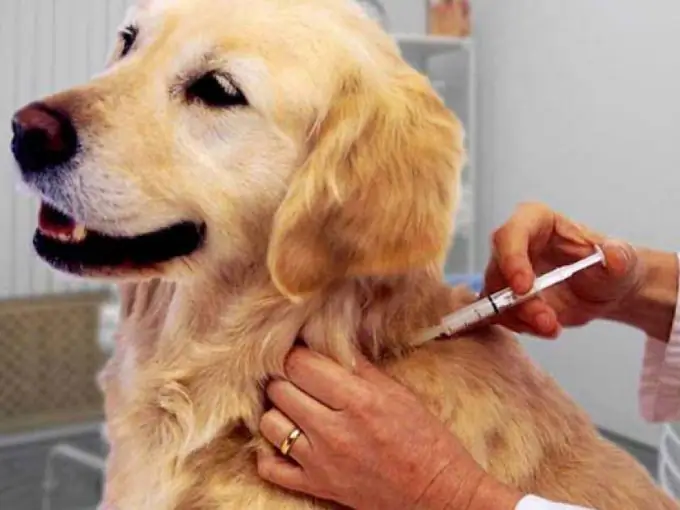- Author Delia Mathews [email protected].
- Public 2023-12-16 00:05.
- Last modified 2025-01-22 15:45.
Many people claim that veterinary medicine kills pets. Doctors give vaccinations that do not cure, but kill pets. Many myths have sprung up around this. Let's take a look at the most common ones.

Animals have their own immunity
Yes, this is partly true. Every living organism has immunity. Unfortunately, the bad ecology has affected the animals as well. Therefore, not every puppy or kitten has an innate immunity to diseases. It is not for nothing that among newborn animals there is a high mortality rate, regardless of whether they are domestic or outdoor. Not only newborns can die from the virus, those who go out for the first time at an early age are also at risk. The environment is quite dangerous for an immature organism and contains many threats that are not visible to the naked eye.
Vaccination causes illness and serious complications
Vaccines themselves are completely harmless. They can really do harm if you neglect the safety rules. It is not just that veterinarians refuse to vaccinate sick, or animals that are still immature after a disease. It is also forbidden to vaccinate pets that have not been treated for parasites. Worms and skin parasites weaken the body.
An animal needs to be vaccinated only once in a lifetime
Of course, this is not the case. For analogy, we can recall the example of the human reaction to mantoux. It is carried out more than once in a lifetime. It's the same with vaccinations. They are made throughout the life of the animal.
Anyone, anywhere can vaccinate an animal
The most dangerous myth. Only a veterinarian specialist in the clinic has the right to vaccinate. Moreover, you cannot go where it is cheapest. This may indicate that the institution saves on the quality of drugs. After vaccination, a label must be affixed in a veterinarian with the seal of the clinic or a specific specialist.
We can safely conclude that vaccines are not just needed, they are vital. Yes, it costs some money, but timely vaccination will still be cheaper than protracted treatment, which does not always end successfully. Especially if it's a serious illness like rabies. Take care of your pet's health from an early age.






